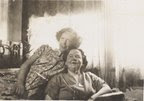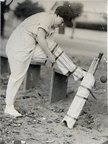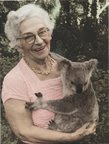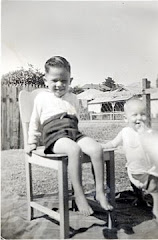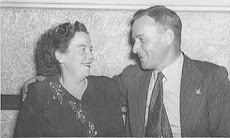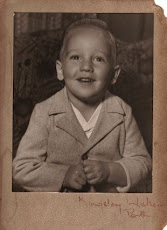"Religious Resources in Resignifications of Queer Identity: The Case of Christopher Isherwood, 'homosexualist' and disobedient subject."
For British critics, Christopher Isherwood went off the literary radar when he declared himself a pacifist and de-camped to California on the eve of WWII. Nothing he wrote after the "Berlin Stories" (1939), when his life was barely half over, until "Christopher and His Kind", in 1976, when he emerged as a kind of gay literary icon, was accorded much serious attention from Britain’s literary establishment.
Furthermore, what he published during his long relationship with a guru in the Ramakrishna Vedanta tradition, which culminated in the classic "My Guru and His Disciple" (1980, published when he was 75), has scarcely been taken seriously, and few literary critics have detected the influence of Vedanta in his later work (e.g. Nagarajan 1972). Yet there have been calls for Isherwood to be re-evaluated as a serious religious writer (Wade 2001).
If such calls are to be taken seriously there are several issues that need to be addressed, not the least of which would be the dominant cultural expectations surrounding the (im)possibility of a spirituality not predicated on the denial of (a non-conformist) sexuality. "My personal approach to Vedanta was, among other things, the approach of a homosexual looking for a religion which will accept him", he wrote in 1970. This panel will interrogate several of the issues contributing to the occlusion of his religious life and writing.
In addition to the pathologizing discourse of psychological medicine that promulgated a construction of "homosexuality" as developmental failure, for example, there is also the problem of an unreconstructed colonialist prejudice towards religious practices associated with a subject people. For a lapsed Anglican atheist and former socialist to take on a guru and investigate Vedanta was unacceptable in 1939, and contributed to the feeling in Britain that he was, once again, "letting down the side". For his best friend, W.H. Auden, all this "heathen mumbo jumbo" was really beyond the pale. Isherwood was seeking out not only a rationale for his new-found pacifism, but a differently ordered array of "technologies of the self" than those provided by the Anglicanism of his upbringing. In Vedanta he found useful transformational tools among an otherwise "subjugated knowledge" system (to borrow Foucault’s terminology) that allowed him to move beyond the boundaries of his culturally ordained subject positioning.
His persistence with the practices of the Ramakrishna Vedanta tradition while continuing as an unrepentant "homosexualist" (Savage, 1979), is an instance of what Judith Butler would describe as a moment "in which the subject exceeds the terms that constitute him/her", a staging of "unforeseen and unsanctioned modes of identity" (Salih, 10).
The panel will address the role of auto/biographical praxis in resignifications of "queer" identity, drawing not only on Butler, but also on feminist theorists of life writing such as Sidonie Smith and Julia Watson (1996), who say that in specific situations, people may "choose not to narrate the stories that are prescribed for them", opting instead to "reframe the present by bringing it into a new alignment of meaning with the past" (12). Writing autobiographically becomes a resistant strategy for re-narrativizing the self, an assertive recontextualization that recovers meaning from the toxic narratives buried within hostile discourses. The "subject" changes place — from being a product of a discourse of subjugation into an assertive agent of self-signification. (One panelist will trace the roots of the genre of "queer spiritual autobiography" back to Whitman and Carpenter in the 19th Century.)
The panel will analyze how his investigation and embrace of Vedanta philosophy and practice confronts the standard views of what is possible for a "gay" man to know. For, by withholding from non-conformists the possibility of an engagement with "the divine", certain strands within conventional Western religious discourse produce what Foucault calls "regimes of truth" — power/knowledge relations that constitute "a set of rules by which truth is produced". In his personal search and his textual interrogation of notions of what constitutes a "self", Isherwood produced versions of subjective identification that disrupted authorized views of masculinity, and confronted the exclusivist modeling of the religious life as it was framed discursively within his own historical and cultural context. One panelist will interrogate modernist constructions common to the period, including the notion that “the homosexual” subject was an identity understood to signify developmental “failure”, in order to mark its difference from a presumably fully-developed, mature “heterosexual” being.
The discussion will draw upon Peter Berger's analysis of the functioning of "plausibility structures" in the sociology of knowledge systems, and the mechanisms by which different sources of knowledge and information are accorded "differential plausibility", with "deviant" views marginalized or excluded. "The threat to the social definitions of reality" writes Berger, with Thomas Luckmann, is neutralized by "assigning an inferior ontological status, and thereby a not-to-be-taken seriously cognitive status, to all definitions existing outside the symbolic universe" (Berger & Luckmann 1966, 133). One panelist will address the prejudicial dichotomizing which casts Western religious practice within a reified "rationalist" discourse, opposed to Hindu beliefs and practices which it characterizes as "superstitious".
Isherwood was inclined less to approach ideas as abstract principles and more as they were embodied in particular people. In Swami Prabhavananda, an exponent of the Ramakrishna Vedanta tradition, Isherwood found a life-long guide, and the narrative of his spiritual journey is the history of a relationship that deepened over forty years. That bond, and the non-dualist elements of Advaita Vedanta that made it a hospitable environment for a former atheist and all-round dissident to explore his spirituality, will be another focus of this discussion.
Thursday, November 13, 2008
Chicago conference
The reason I was in Chicago on election day was that I had organised a panel discussion at a big academic conference, the annual meeting of the American Academy of religion, the largest gathering of religious studies scholars in the world. I had been encouraged by a nun from the Ramakrishna Order, who knew Isherwood, to propose a panel discussing Isherwood's neglected spiritual writings, and over a period of some 10 months, pulled together contributors from London (Katherine Bucknell, editor of the Isherwood Diaries - 3rd and final volume almost complete), New York (Jamie Carr, a young PhD whose splendid thesis was imemdiately picked up by Routledge), a scholar from Italy (Mario Faraone), and the nun, Pravrajika Vrajaprana. The panel was presided over by Dr james Berg, who has published three edited volumes of essays on Isherwood and collections of Isherwood pieces.
As a result of this initiative I have been approached by a professor of religion from Barnard College, at Columbia University, to guest edit a special issue of her journal and I have asked James Berg to work with me on that. The name of her journal is: 'Postscripts: The Journal of Sacred Texts and Contemporary Worlds', an interdisciplinary journal published by Equinox Publishers (UK).
She made this offer on the strength of the blurb I wrote for the AAR conference program... I'll publish that in a separate post...
As a result of this initiative I have been approached by a professor of religion from Barnard College, at Columbia University, to guest edit a special issue of her journal and I have asked James Berg to work with me on that. The name of her journal is: 'Postscripts: The Journal of Sacred Texts and Contemporary Worlds', an interdisciplinary journal published by Equinox Publishers (UK).
She made this offer on the strength of the blurb I wrote for the AAR conference program... I'll publish that in a separate post...
Cover art coup!
While in L.A., I took the chance to meet up with Don Bachardy again. Don was Christopher Isherwood's life partner, and is a famous portrait artist. My interview with him was published in White Crane in 2006. Don has kindly provided a portrait of Isherwood for cover art for my forthcoming book on Isherwood, tentatively titled 'Mr Isherwood Changes Trains' (a reference to his famous Berlin novel, 'Mr Norris Changes Trains').
Apart from the Melbourne publisher (Clouds of Magellan) I met with the editorial chief of White Crane while In New York and he is looking at the manuscript now (it's still in rough draft form, after being re-worked so it reads less like a PhD thesis...)
Apart from the Melbourne publisher (Clouds of Magellan) I met with the editorial chief of White Crane while In New York and he is looking at the manuscript now (it's still in rough draft form, after being re-worked so it reads less like a PhD thesis...)
U.S. election coverage
What's left of my article (they cut it by about 1/3rd) on the US election (I was in Chicago on election day)
is at the Byron Echo's online site: www.echo.net.au
but you have to search for it. The heading is American spirit rekindled by a true leader
The full web address is:
http://www.echo.net.au/index.php?option=com_content&task=view&id=1255&Itemid=543
The Echo is my local newspaper in Byron Bay, New South Wales
Coming back through LA last Friday night, I was picked up at the airport by a couple I have known for 20 years; they married 6 weeks ago, after 26 years together (longer than most 'straight' couples I know)! Imagine how pissed they are about Prop 8... However, as we returned to their house in Long Beach, they mentioned that a demo had been going on for several hours. As soon as we got to their house, we were drawn out by a cluster of helicopters hovering a few blocks away. So we marched down the street for a few blocks, made a left and voila! we were in a large demo, police with full riot gear and so on, informing us (on a tape loop through amplifiers on the back of a truck) that if we didn't disperse immediately we would be arrested! The recorded message ("in the name of the people of California" no less!) was drowned out for at least an hour by constant rounds of chanting.
It was so exhilarating, after being in Chicago on election day itself, to land back in California and be able to join in that protest. It took me back to the days of the anti-war marches against the stupid involvement in Vietnam, and I was chuffed to see my brothers (and sisters) not laying down and taking it anymore. I remembered the feisty spirit of the drag queens in New York, who started the riots at the famous Stonewall Inn and kicked off a revolution...
As for the success of the nasty Prop 8; as many people pointed out over there, the huge turnout of voters, esp. black voters, many of whom are churchgoers, meant that their conservative 'Christian' values came with them.
The surprise is that Gov Arnold Schwartzenegger (spelling?), who originally said that marriage was between a man and a woman, expressed disappointment that the prop. actually passed, encouraged gays to take it to the courts (that is happening now) and said if they wanted to pick up a lesson from body building, to never give up!
Arnie does have a Democrat wife (former newswoman and member of the Kennedy/Shriver clan), but I wonder what his belated opinion is worth: he's standing for re-election in less than 2 years and I am sure he would want the gay vote!
is at the Byron Echo's online site: www.echo.net.au
but you have to search for it. The heading is American spirit rekindled by a true leader
The full web address is:
http://www.echo.net.au/index.
The Echo is my local newspaper in Byron Bay, New South Wales
Coming back through LA last Friday night, I was picked up at the airport by a couple I have known for 20 years; they married 6 weeks ago, after 26 years together (longer than most 'straight' couples I know)! Imagine how pissed they are about Prop 8... However, as we returned to their house in Long Beach, they mentioned that a demo had been going on for several hours. As soon as we got to their house, we were drawn out by a cluster of helicopters hovering a few blocks away. So we marched down the street for a few blocks, made a left and voila! we were in a large demo, police with full riot gear and so on, informing us (on a tape loop through amplifiers on the back of a truck) that if we didn't disperse immediately we would be arrested! The recorded message ("in the name of the people of California" no less!) was drowned out for at least an hour by constant rounds of chanting.
It was so exhilarating, after being in Chicago on election day itself, to land back in California and be able to join in that protest. It took me back to the days of the anti-war marches against the stupid involvement in Vietnam, and I was chuffed to see my brothers (and sisters) not laying down and taking it anymore. I remembered the feisty spirit of the drag queens in New York, who started the riots at the famous Stonewall Inn and kicked off a revolution...
As for the success of the nasty Prop 8; as many people pointed out over there, the huge turnout of voters, esp. black voters, many of whom are churchgoers, meant that their conservative 'Christian' values came with them.
The surprise is that Gov Arnold Schwartzenegger (spelling?), who originally said that marriage was between a man and a woman, expressed disappointment that the prop. actually passed, encouraged gays to take it to the courts (that is happening now) and said if they wanted to pick up a lesson from body building, to never give up!
Arnie does have a Democrat wife (former newswoman and member of the Kennedy/Shriver clan), but I wonder what his belated opinion is worth: he's standing for re-election in less than 2 years and I am sure he would want the gay vote!
Wednesday, November 5, 2008
election night, from Chicago/New York
9 pm Tuesday 4th, live from New York
I was at a conference in Chicago and today travelled from Chicago to New York.
Ensconced in cosy apartment on the swank upper West side, Manhattan, watching blanket election coverage as the votes roll in, and laughing at the media's irrepressible need to be AHEAD of the news... In spite of their gruesome blunder in 2004, when at this stage of the voting were calling the election for Kerry... and we all know who won then! They can't stop themselves - NBC one of the worst offenders, still calling 'results' from notoriously unreliable exit polling, taken from interviews with people as they exit the polling booths.
Coming through the States via Los Angeles, last week, it was impossible to ignore the mood of anticipation, undercut by fear and trepidation. Could it be possible that this well-educated, calm, 'mixed race' candidate, with the knack of inspiring people to hope for change, could actually displace the monstrous Cheney/Bush push.
We all watched in dismay as the idiot leaders squandered the sympathy and goodwill flowing towards the US after September 11, and regressed the most powerful gorilla in the tribe into big grunt warrior chest beating idiocy. Crikey! what a mess they have plunged us all into.
I sometimes wonder if this is what it was like when homo sapiens began to emerge as a new evolutionary force... They must have had to share the planet with whatever preceded them; a long period of overlap, no? Was it: cro-Magnon man??? My paleoanthropology is not a strong point. Homo sapiens had to outsmart the drongoes, even while it had to share food and territory. Do you think we can evolve our way into a new way of being in the world?
I was at a conference in Chicago and today travelled from Chicago to New York.
Ensconced in cosy apartment on the swank upper West side, Manhattan, watching blanket election coverage as the votes roll in, and laughing at the media's irrepressible need to be AHEAD of the news... In spite of their gruesome blunder in 2004, when at this stage of the voting were calling the election for Kerry... and we all know who won then! They can't stop themselves - NBC one of the worst offenders, still calling 'results' from notoriously unreliable exit polling, taken from interviews with people as they exit the polling booths.
Coming through the States via Los Angeles, last week, it was impossible to ignore the mood of anticipation, undercut by fear and trepidation. Could it be possible that this well-educated, calm, 'mixed race' candidate, with the knack of inspiring people to hope for change, could actually displace the monstrous Cheney/Bush push.
We all watched in dismay as the idiot leaders squandered the sympathy and goodwill flowing towards the US after September 11, and regressed the most powerful gorilla in the tribe into big grunt warrior chest beating idiocy. Crikey! what a mess they have plunged us all into.
I sometimes wonder if this is what it was like when homo sapiens began to emerge as a new evolutionary force... They must have had to share the planet with whatever preceded them; a long period of overlap, no? Was it: cro-Magnon man??? My paleoanthropology is not a strong point. Homo sapiens had to outsmart the drongoes, even while it had to share food and territory. Do you think we can evolve our way into a new way of being in the world?
Subscribe to:
Posts (Atom)

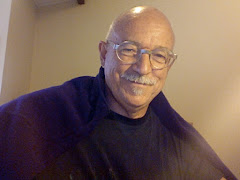
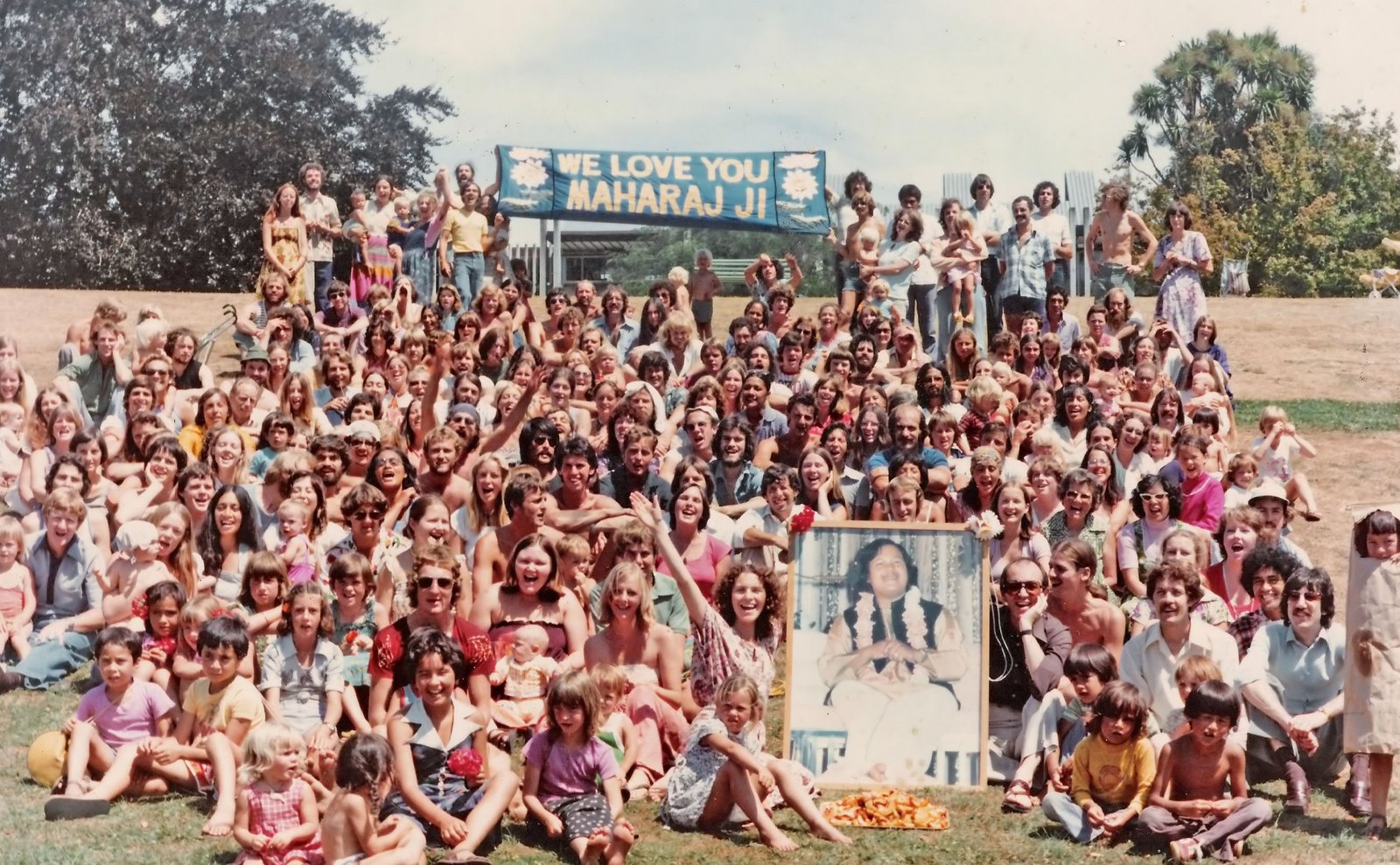
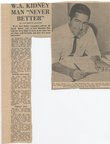
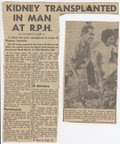







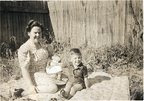
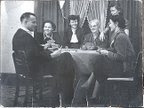
.jpg)

